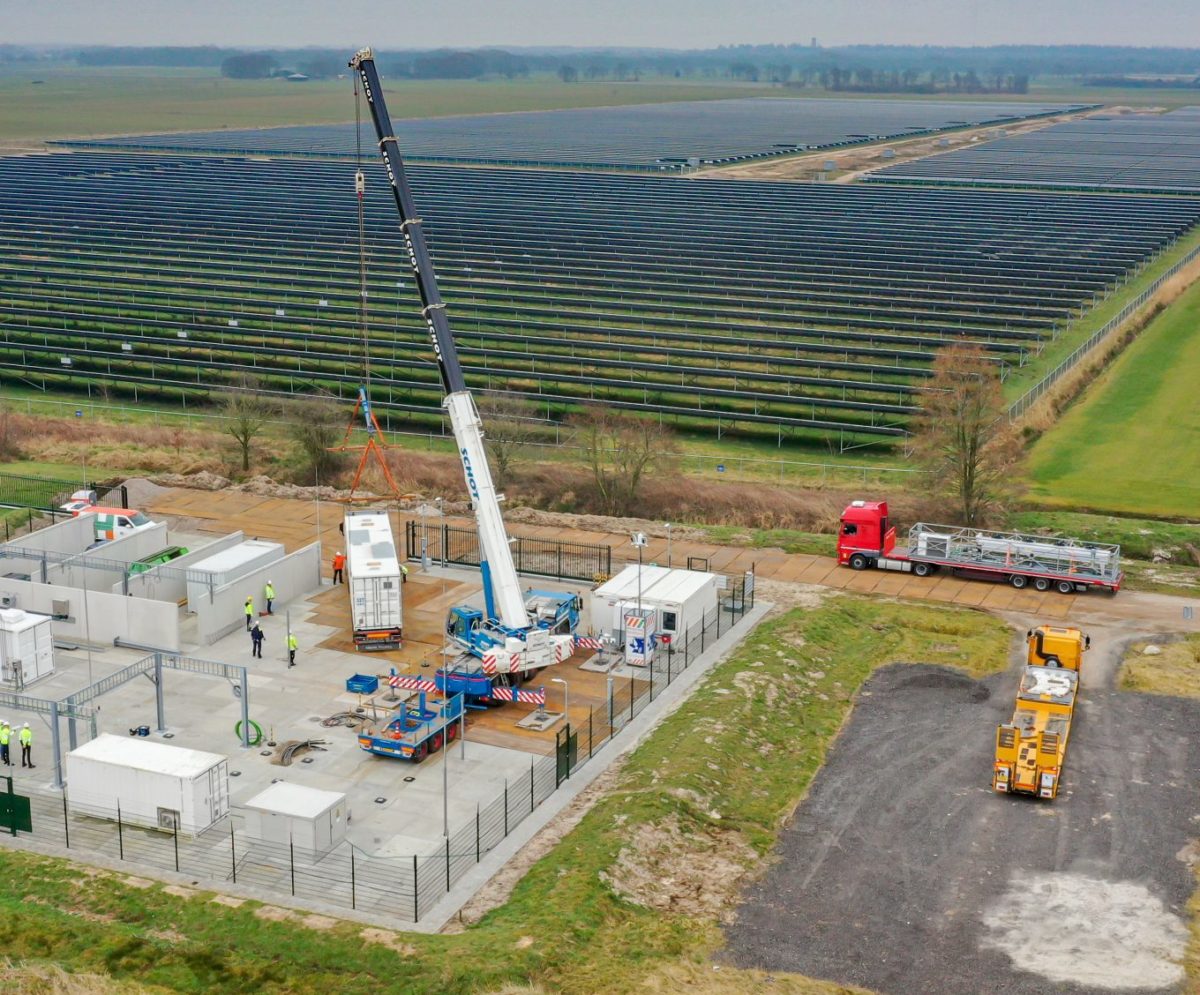Groenleven, the Dutch unit of German renewable energy company BayWa re; and the Netherlands’ largest utility, Alliander, have commissioned the Netherlands' first PV-powered hydrogen production site, in Oosterwolde, in the Dutch province of Friesland.
“Alliander and GroenLeven will investigate how hydrogen can play a role in areas where the capacity of the electricity grid is not sufficient to host new large scale solar capacity,” the two companies said, referring to recent network capacity issues in the northern Netherlands.
Alliander wants to evaluate, in particular, if grid congestion in the area can be reduced or prevented and whether hydrogen would enable spending fewer resources on grid expansion.
The hydrogen production unit will be operated by Alliander and will be linked to a nearby, 50MW solar park operated by Groenleven. The green hydrogen generated at the new facility will be purchased by local taxi company Kort and fuel supplier OrangeGas at an unspecified price. “It is expected that 100,000kg of hydrogen can be produced annually, which is enough for about 10 million clean kilometers of car journeys with a passenger car,” Alliander stated. GroenLeven will investigate how green hydrogen can be stored and used for other applications.
“The pilot project that we are implementing together with GroenLeven gives us the opportunity to see if hydrogen can contribute to the efficient use of our electricity grids,” the company's CEO, Daan Schut, emphasized. “By making hydrogen with the electricity generated from the solar park, and using it as fuel to drive cars, we are burdened less and no sustainably-generated energy is lost.”
According to the Dutch energy provider, hydrogen is expected to flow through the pipelines of the installation for the first time in June.
Alliander recently reported that congestion on its medium-voltage network is increasing due to rapidly growing demand from solar projects, data centers, and other energy-intensive industries, such as the greenhouse-horticulture sector.
Dutch transmission system operator Enexis, natural gas infrastructure company Gasunie and energy firm Nederlandse Aardolie Maatschappij BV (NAM) began considering using excess solar power generation capacity in the northeastern Netherlands for hydrogen production in late 2019.
This content is protected by copyright and may not be reused. If you want to cooperate with us and would like to reuse some of our content, please contact: editors@pv-magazine.com.




4 comments
By submitting this form you agree to pv magazine using your data for the purposes of publishing your comment.
Your personal data will only be disclosed or otherwise transmitted to third parties for the purposes of spam filtering or if this is necessary for technical maintenance of the website. Any other transfer to third parties will not take place unless this is justified on the basis of applicable data protection regulations or if pv magazine is legally obliged to do so.
You may revoke this consent at any time with effect for the future, in which case your personal data will be deleted immediately. Otherwise, your data will be deleted if pv magazine has processed your request or the purpose of data storage is fulfilled.
Further information on data privacy can be found in our Data Protection Policy.